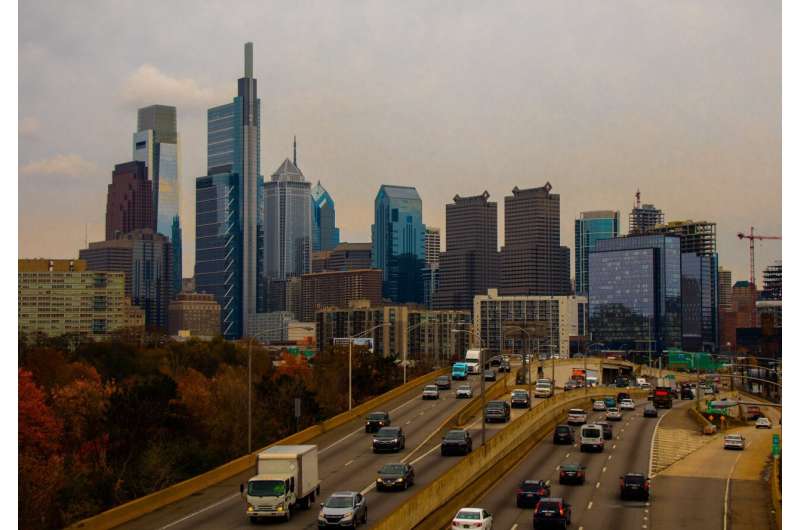How will the I-95 bridge collapse affect the supply chain? It will be ‘staggering,’ expert says

The collapse of an Interstate 95 bridge in Philadelphia creates not just a traffic problem, it’s also a “really serious” supply chain problem—and that’s going to hit your wallet, Northeastern University expert Nada Sanders says.
“You’re going to feel this on the national level,” says Sanders, a distinguished professor of supply chain management. “It’s staggering.”
A deadly and fiery crash involving a tanker carrying 8,500 gallons of gasoline collapsed a section of I-95 in Northeast Philadelphia, closing a stretch of highway that the Delaware Valley Regional Planning Commission says carries roughly 150,000 vehicles per day, including 14,000 trucks.
Sanders is very familiar with the road, having traveled it routinely while a professor at Lehigh University in Bethlehem, Pennsylvania. That experience amplifies her concern.
“This is a very major artery in an already very crowded highway system that can already be bumper to bumper,” Sanders says. “I’ve driven it many times, it’s something you dread. … It’s bumper to bumper, and then you get to the New Jersey Turnpike and you hold your breath.”
Moreover, there are few comparable alternatives to the roadway.
“It’s very country; it’s not a place where you could just easily take an alternative highway,” Sanders says. Rather, country roads “with like 60 traffic lights” course through quaint small towns, she says.
But those roads are going to need to handle some significant additional traffic. Moreover, they are going to have to handle that additional traffic for a pretty significant period of time—Sanders says we’re talking about “months at best” to fix the bridge.
“This, I believe, is going to have an incredible supply chain impact because it’s not something that can be fixable in a week or two,” Sanders says.
“It doesn’t necessarily mean you’re not going to get your goods,” Sanders continues. “It means A, things will take longer; and B, things will cost more.”
Sanders explains that the detours (reported at over 40 miles for some commuters) around the affected area will mean more miles for goods to travel—which also means more gas, more drivers and thus more cost to ship. That extra cost will be passed on to the consumer.
In addition, you must consider the types of items being shipped.
Suppliers shipping perishable items or items with a shorter shelf-life take into account the shipping time when moving such goods. With the increased travel time and distance, Sanders predicts increased spoilage, meaning less food available and thus higher prices.
Moreover, much of the materials moved along the corridor are not necessarily finished products but components of products—or, as Sanders describes it, “something that goes into something, that goes into a package, that goes somewhere else.”
Without those component products readily available, Sanders says manufacturers will likely horde inventory, also impacting prices.
Yes, the effects will be local at first, Sanders says, but the corridor’s importance in moving goods along the East Coast will “create ripple effects” that will be felt nationwide.
“I think everyone, given what we have gone through the last three years, knows about the ripple effects,” Sanders says. “I’m really surprised that the media is not talking more about it. This is serious, really serious.”
Citation:
How will the I-95 bridge collapse affect the supply chain? It will be ‘staggering,’ expert says (2023, June 15)
retrieved 15 June 2023
from https://phys.org/news/2023-06-i-bridge-collapse-affect-chain.html
This document is subject to copyright. Apart from any fair dealing for the purpose of private study or research, no
part may be reproduced without the written permission. The content is provided for information purposes only.
For all the latest Science News Click Here
For the latest news and updates, follow us on Google News.

